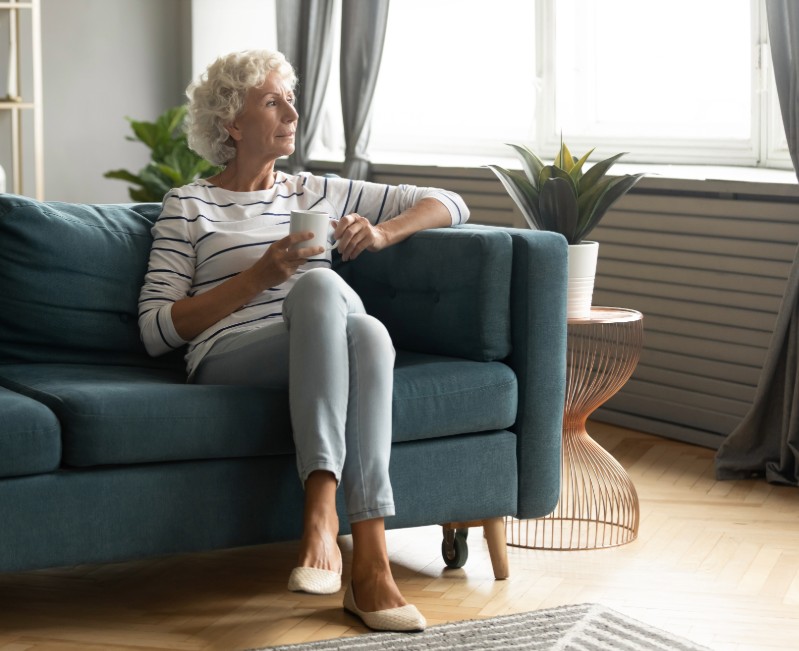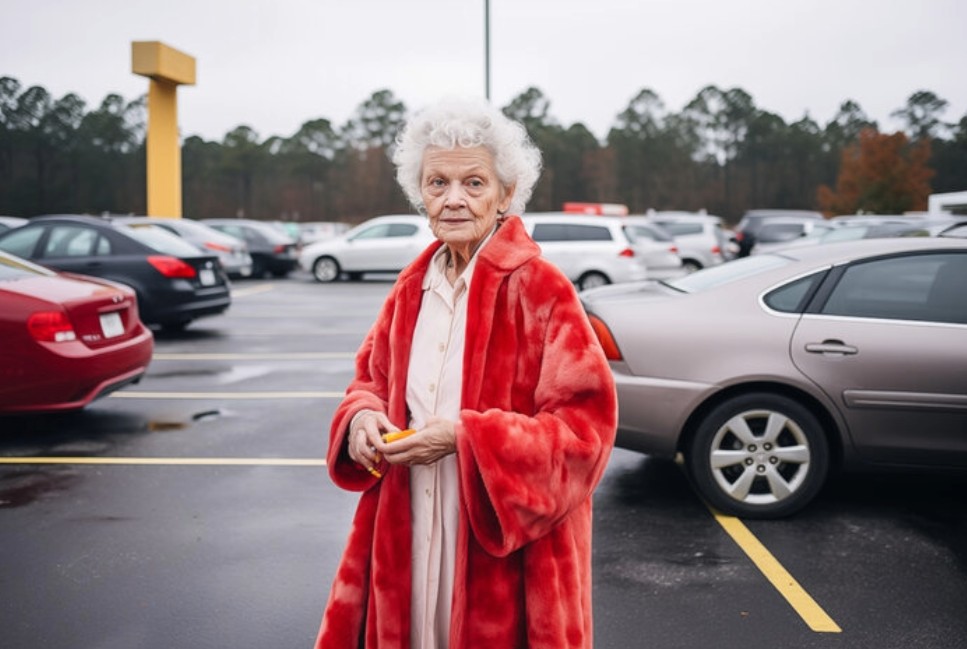
Living with dementia or caring for someone who is showing signs of memory problems comes with daily challenges of cognitive decline, memory loss, and neuropsychiatric symptoms that demand consistent attention.
One way to ease the burden is to create a safer and more supportive environment for loved ones living with Alzheimer’s, memory loss, or other cognitive conditions. This fosters independence while minimizing risk.
Stevie Kiziukiewicz, owner of Seawind Health Advocacy Group, has a number of credentials and certifications related to dementia care giving. As a Certified Dementia Practitioner, a Certified Montessori Dementia Care Professional Care Manager, and Certified Dementia Support Group Facilitator she is a uniquely qualified dementia home safety advocate.
Seawind Health Advocacy Group helps patients in Ocean County, New Jersey and understands the complex needs of people with dementia and their caregivers. If you’re managing Alzheimer’s disease, Lewy body dementia, frontotemporal dementia, or mixed dementia, this guide provides practical strategies for enhancing home safety and reducing confusion.
Understanding Dementia and Its Impact on Home Safety
Dementia isn’t a single disease—it’s a general term for a decline in cognitive function severe enough to interfere with daily life. The most common cause is Alzheimer’s disease, but other forms include vascular dementia, Parkinson’s disease dementia, and Huntington’s disease. All types share certain dementia symptoms: memory problems, poor judgment, sleep disturbances, and difficulty with self care tasks.
Cognitive impairment affects thinking skills, impulse control, and the ability to perform self care tasks, making even simple environments potentially hazardous. Modifiable risk factors like high blood pressure, high cholesterol, poor nutrition, and too much alcohol can increase the chance of developing dementia, while non-pharmacological therapies such as cognitive training and a healthy diet may support brain health.
Key Safety Challenges for People with Dementia
Creating a safe environment for someone with dementia starts with understanding the unique safety risks that come with the condition. As cognitive abilities decline, everyday activities like walking through the house, using the stove, or taking medication can become dangerous.
These risks aren’t just about forgetfulness—they’re often rooted in how dementia affects judgment, perception, and behavior. Caregivers can reduce harm, respond proactively, and support independence wherever possible by recognizing these key safety challenges.
Wandering and Disorientation
- Late stage dementia often causes people to become confused about where they are.
- Frontal and temporal lobe degeneration can impair spatial awareness.
Personal Safety Risks
- Cognitive decline reduces hazard awareness.
- Slips, falls, and misused appliances become serious concerns.

Medication Mismanagement
- Memory loss increases the risk of overdosing or skipping doses.
Fire and Water Hazards
- Forgetting to turn off stoves or overflowing baths can be life-threatening.
Practical Tips to Make the Home Dementia-Friendly
Designing a dementia-friendly home doesn’t require a complete renovation—it requires intentional changes that support safety, reduce confusion, and preserve dignity. From structured daily routines to strategic use of lighting and labels, small adjustments can have a big impact on how someone with dementia experiences their environment.
Caregivers can make living spaces more secure, supportive, and responsive to the cognitive and physical needs of their loved ones. If you’re dealing with early signs of dementia or responding to more advanced symptoms, these strategies can help create a safer, calmer home.
Supervision and Structure
- Establish a daily routine to reduce confusion. Use visual cues (pictures, labels) on drawers and doors.
- Install monitoring devices (motion sensors, door alerts) for early signs of wandering.
Secure the Living Environment
- Remove tripping hazards like rugs and clutter.
- Install grab bars and non-slip mats in the bathroom. Use contrasting colors for walls and floors to help with depth perception.
- Ensure good lighting throughout the home.
Prevent Wandering
- Install secure locks out of line of sight.
- Use child-proof doorknobs or alarms to alert when a door is opened.
- Create a safe outdoor area where the person can walk without risk.
Kitchen and Bathroom Safety
- Lock away sharp objects, cleaning supplies, and alcohol.
- Use automatic shut-off appliances. Lower water heater temperatures to prevent burns.
- Supervise when cooking or bathing becomes unsafe.
Organize for Cognitive Stimulation
- Designate quiet zones and activity areas.
- Keep commonly used items visible and accessible.
- Offer safe puzzles, memory books, or fidget tools to encourage cognitive stimulation.
Health and Medical Preparedness
- Keep an up-to-date list of medications and allergies.
- Store copies of advance directives and powers of attorney in an accessible place.
- Maintain a current medical history, including chronic diseases, health conditions, and family history.
- Prepare an emergency folder with magnetic resonance imaging (MRI) and laboratory tests.
Emotional Support for Caregivers
Caring for someone with dementia can be emotionally and physically draining. As the seventh leading cause of death worldwide, dementia affects not only individuals but entire families. Depression screening, support groups, and self-care are vital for caregiver well-being.
- Share responsibilities with family members or professionals.
- Join support networks like the Alzheimer’s Association.
- Use respite care services to avoid burnout.
- Seek early diagnosis and early treatment to plan ahead.
When to Call a Dementia Home Safety Advocate

A dementia home safety advocate helps families assess personal safety challenges and design effective, individualized safety strategies. Seawind Health Advocacy Group provides in-home consultations and virtual guidance across Ocean and Monmouth County, NJ. We focus on:
- Evaluating dementia risk factors
- Planning for progressive dementias
- Creating customized safety and care plans
- Coordinating with healthcare providers and specialists
- Offering non-pharmacological therapy options
Dementia depends on a variety of factors—from specific disease type and health conditions to modifiable risk factors and genetic predisposition. Whether due to abnormal deposits (like in Alzheimer’s or Lewy bodies) or impaired blood vessels (as in vascular dementia), the outcome is the same: a gradual loss of cognitive abilities.
By adapting your home environment to meet the needs of those with cognitive impairment, you can drastically reduce risk and enhance quality of life. Don’t wait for a crisis. If you suspect early signs of dementia or are already managing care, reach out to Seawind Health Advocacy Group, a trusted dementia home safety and board certified, independent patient advocate in NJ.



